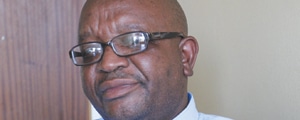
Taking into perspective what the government-controlled Press has been shrieking about of late, President Robert Mugabe, not withstanding the Rosary in his pocket, may be having sleepless nights. Tapiwa Nyandoro
Nightmares are bound to be frequent, as it is written, in times of serious problems and strife: “I shall dazzle you with dreams and you shall not know what they mean.”
He genuinely wants the economy to grow, which would be a way out of his nightmares and the nation’s socio-economic problems.
That, even globally, is easier said than done. The South African Reserve Bank has downgraded its focus for economic growth in 2015 to a lowly 1, 7%. This is despite the fact that the southern neighbour has far healthier finances than the basket case across the Limpopo.
Keeping social and political unrest under wraps in a country like Zimbabwe at the moment is enormously difficult. According to The Economist (The World in 2014), “social and political unrest is defined as developments that pose a serious threat to governments or the existing political order”.
That edition of The Economist, which comes out in December of the preceding year, correctly placed Zimbabwe in the very high risk category for social or political unrest.
The recent political upheavals in Zanu PF are a case in point. Analysts, basing on forward-looking assessments of the risk of social or political unrest, rate countries on a scale of zero (very low) to four (very high).
Zimbabwe, with 18 other countries, five of them African, out of 150 was in the 4th rating.
- Chamisa under fire over US$120K donation
- Mavhunga puts DeMbare into Chibuku quarterfinals
- Pension funds bet on Cabora Bassa oilfields
- Councils defy govt fire tender directive
Keep Reading
Globally, since the 2008 – 2009 financial crises, social or political unrest has been on the rise. The reasons for the protests are said to vary.
However, economic distress, as currently buffeting Zimbabwe, is “almost a necessary condition for serious social or political instability, though not all by itself, as declines in income and high unemployment may not always be followed by unrest”.
The other conditions precedent for increasing risk for unrest, apart from economic troubles, are such elements of vulnerability as wide income inequality (as in SA), poor government, low level of social provision (both as in Zimbabwe), ethnic tension (which the current hate speech in Zanu PF risk igniting), and a history of unrest.
The last, thankfully, is not a manifestation of post-independence Zimbabwe.
But that really should be of no comfort to those in power as “political reactions to economic distress have historically come with a lag”. If austerity is still on the agenda (as in Zimbabwe, in line with the IMF’s Staff Monitored Programme), this may fuel social and political unrest. No wonder Zimbabwe’s Ministry of Finance has resisted it pointing out “they needed to consult”.
Yet, in Zimbabwe, in the absence of a local currency, and thus monetary policy, austerity may be unavoidable.
President Robert Mugabe may have been aware of these facts when, thinking aloud, he ruled out an uprising on the lines of the Arab Spring. He was coming from a handover takeover of the Community Share Ownership Scheme by Unki (or was it Mimosa) Mine.
The Head of State said instead a coup was more likely. Could the goings-on in his party be a modern-day “coup” in evolution? Recent references to the Presidency as being a straitjacket and to top army brass as cadres instead of soldiers by Nathaniel Manheru, a Herald columnist and a member of the establishment, seem to suggest so.
“Of particular importance in sparking unrest in recent times appears to have been the erosion of trust in governments and institutions: a crisis of democracy,” the article referred to above, by Laza Kekin, of the Economist Intelligence Unit-EIU, stated. The EIU’s analysts measure the risk of social unrest in 150 countries around the world, placing heavy emphasis on institutional and political weaknesses.
In 2013 it found out that “recent developments revealed a deep sense of popular dissatisfaction with political elites and institutions in many emerging markets”. Zimbabwe, of course, would be no exception.
In its December 2013 forecast for 2014, the EIU rated 65 countries or 43% of the 150 as falling in the high or very high risk of social unrest. Zimbabwe was in the top 19 countries rated as very high risk, alongside other five African countries the likes of troubled Egypt, Sudan, Libya, Swaziland and Nigeria, where Boko Haram has since established roots.
So, what options exist for the old warrior? Hand over power to new brooms as he has been doing for some time now with limited success? Expedite re-engagement with the West and the Bretton Wood twins, who will demand his party’s political scalp as trophy?
Call elections and ensure that they are free and fair and let his successor engage with the electorate on a “truth” platform to re-establish trust, the now missing ingredient not only amongst the ruling elite, but between them and the masses. Indeed between them and their colleagues in the profession of arms?
Adopt Chinese-style one-party constitution? But even the Communist Party of China worries about the trust between itself and its subjects.
Double-digit economic growth over three decades and intolerance of corruption has earned it that trust.
Trust, like leadership, like reputation, has to be earned and once lost is hard to recover. Uneasy lies the head that wears the crown.











